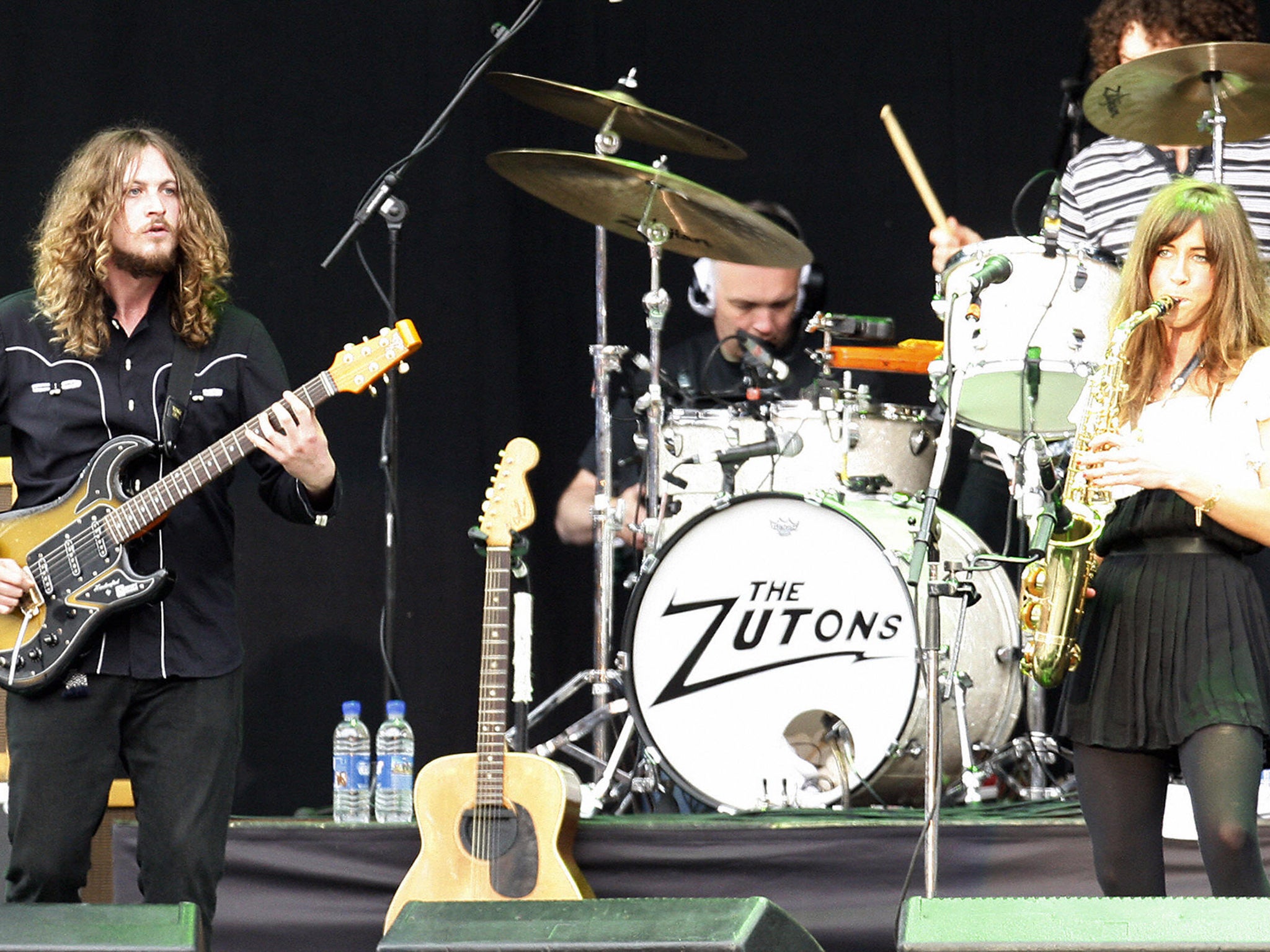Matt Barton: Founding member of Tramp Attack teaches us all about how to avoid wealth and fame
There's no success like failure

In 2010, to make ends meet, Matt Barton took a job as a steward at the V Festival. An anonymous man in a hi-vis jacket, no one in the crowd would have recognised Barton. He, though, was on first-name terms with a fair few of the musicians on stage. “I didn’t have to avoid them,” he says now. “I wasn’t allowed backstage.”
Barton, you see, had been a founding member of a band called Tramp Attack, the nearly men of the Liverpool music scene from which bands such as the Coral and the Zutons found success in the early 2000s. For Barton, though, it wasn’t to be and he captured his lack of success in a blog called What Would Matt Do?
“‘But who is this guy?’ I hear you ask. ‘I’ve never heard of him.’ Well, that’s the point. If you want to succeed, it’s very important to know WHAT NOT TO DO. Go into virtually any music-biz situation, thinking, ‘What would Matt Barton do?’ Then simply do the opposite,” he wrote.
Now, Barton’s blog has been turned into a comic book by the artist Steve Lucas. Does this, then, finally mark the point at which Barton has become a success? “Well, it’s nice for everything not to have meant nothing,” he says. And can he pinpoint the precise moment he blew it, music-wise? “We were doing a photoshoot for the NME and I refused to wear the shoes that the photographer asked me to,” he says. “Which perfectly illustrates the way I was – awkward for the sake of it. Actually,” he says, “don’t put that in. There were probably sound artistic reasons.”
Cave new world
“The premises are a place for business, and in consideration for others, members and their guests are expected to dress accordingly,” reads the dress code for the Institute of Directors on London’s Pall Mall. Last week, however, Carl Rosier-Jones celebrated the launch of his book in the building and turned up dressed as a caveman, complete with comedy Neanderthal feet. Why?
“My book is about a serious subject – stress,” he says. “When I was suffering from post-traumatic stress disorder (PTSD) and looking for a book to help, I found most were far too serious. I wanted to take a more light-hearted approach.”
The result (inset right) is The Caveman Principles (£14.99, Filament), Rosier-Jones’s attempt to helps others become “better members of their tribe”. Unlike many self-help writers, Rosier-Jones has frontline experience. In 2011, he was shot at six times while working as a police officer in Swindon. The gun contained blanks, but Rosier-Jones did not know that and the full impact of his PTSD hit him when he had to return to the scene last year. “I’m still a uniformed officer in the investigations unit, so I know what stress is,” he says.
The end of the line
It has long been believed that we Brits love to queue (inset, top). But for an insight into how our attitude to forming an orderly line has changed over the years, look no further than three books that chart this peculiar national obsession.
The first, How to Be a Brit, is a reprint of the Hungarian writer George Mikes’s observations on his adopted homeland, first published in 1946. He notes: “At weekends an Englishman queues up at the bus-stop, travels out to Richmond, queues up for a boat, then queues up for tea, then queues up for ice-cream, then joins a few more queues just for the fun of it.” In The British Constitution: First Draft, Guy Browning lays down the “Laws of Queueing”, concluding: “In the event of a verbal warning failing, the queue is allowed to seethe with resentment accompanied with barely audible muttering.”
For millennials, the up-to-date advice comes from Aaron Gillies, best known by his Twitter handle @TechnicallyRon. In his Life-Abet: An A to Z of Existence, his first rule for “How to Queue the British Way” is “Get to the back of the queue, you prick! You are not the most important person in the world.” George Mikes must be turning in his grave.
The slice is right
You’ll have heard about the junkification of “molecular gastronomy”, which involves chefs at Plan Check, a restaurant in LA, creating Ketchup Leather, (inset, above) a dehydrated slice of tomato paste, soy sauce, garlic and spices.
But what do the men behind the MEATliquor joints, makers of Britain’s ooziest, filthiest burgers, make of it? “It’s a nice idea. We’ve been working on a mustard chamois , so we’re gutted to be pipped to the post.” Then they mutter darkly about a “gherkin merkin .... the Brazilians have already expressed an interest.”
No rhyme or reason
Another in a regular series of limericks based on recent events:
The crowd at Brunel University,
Found a new way to deal with adversity,
But while you just can’t admire,
The source of their ire,
Were they turning their backs on diversity?
Twitter: simmyrichman
Join our commenting forum
Join thought-provoking conversations, follow other Independent readers and see their replies
Comments
Bookmark popover
Removed from bookmarks